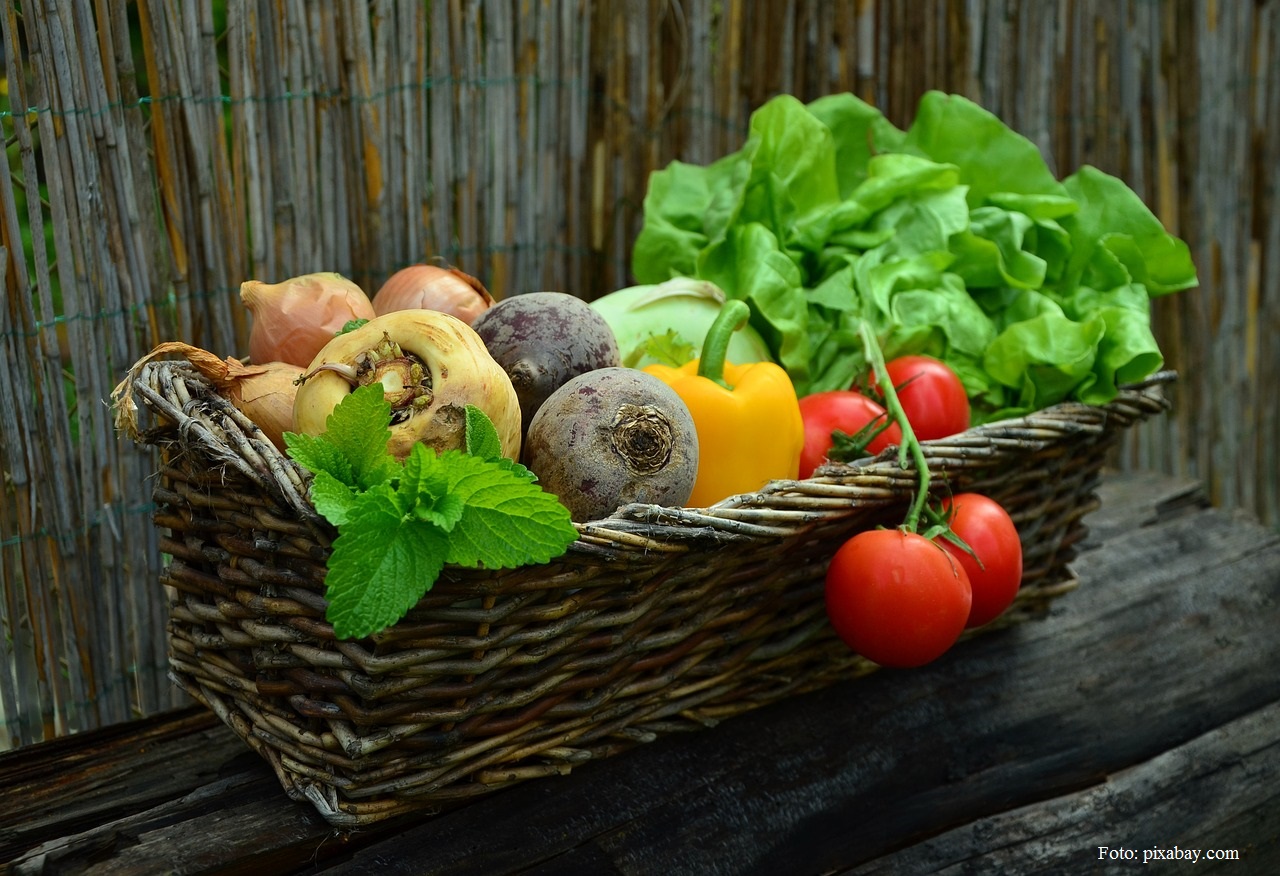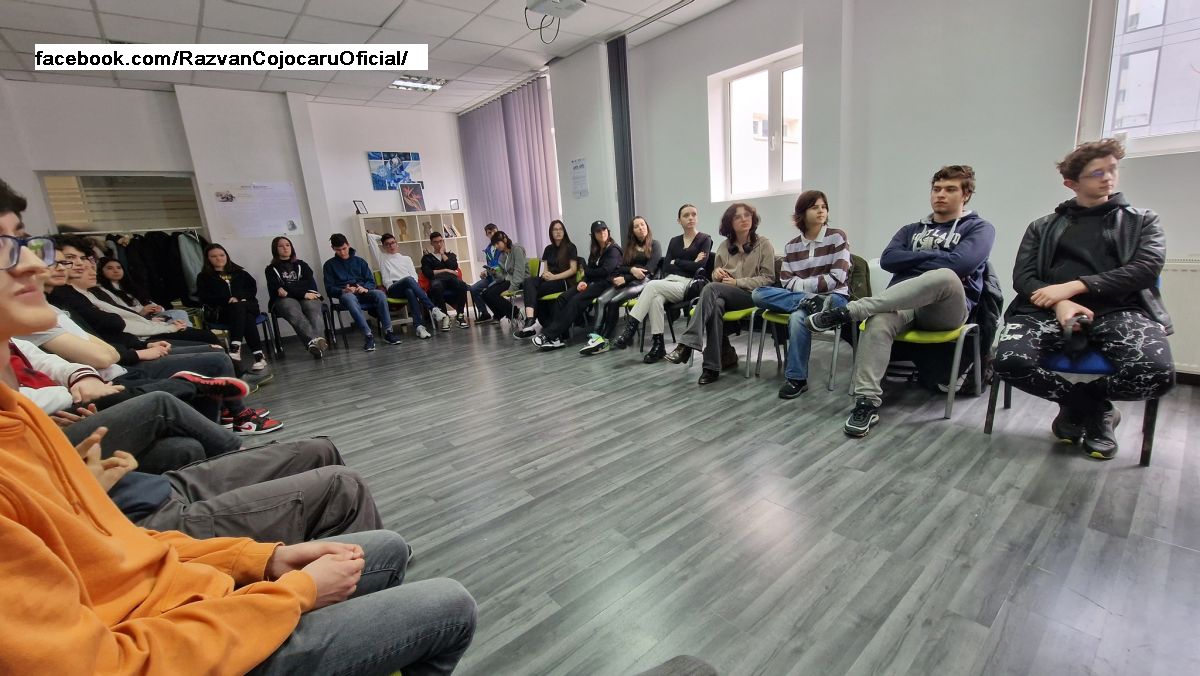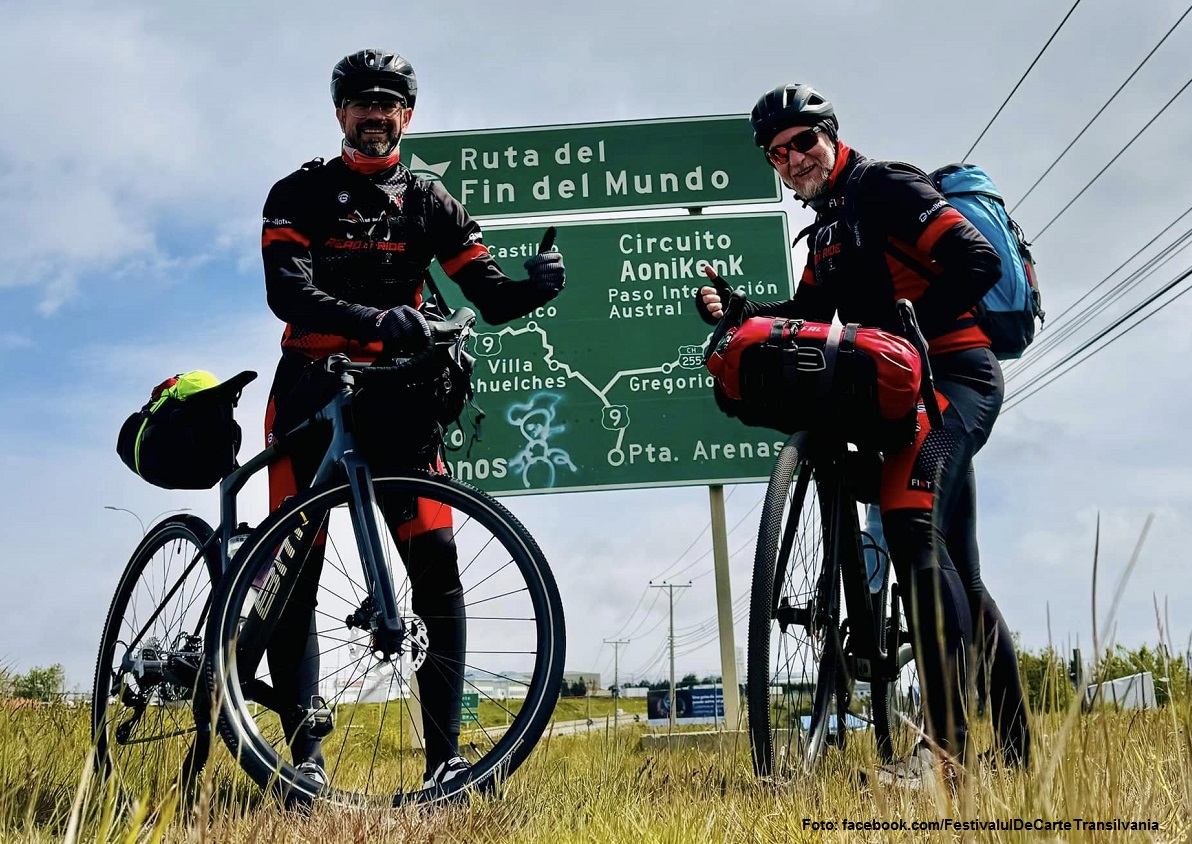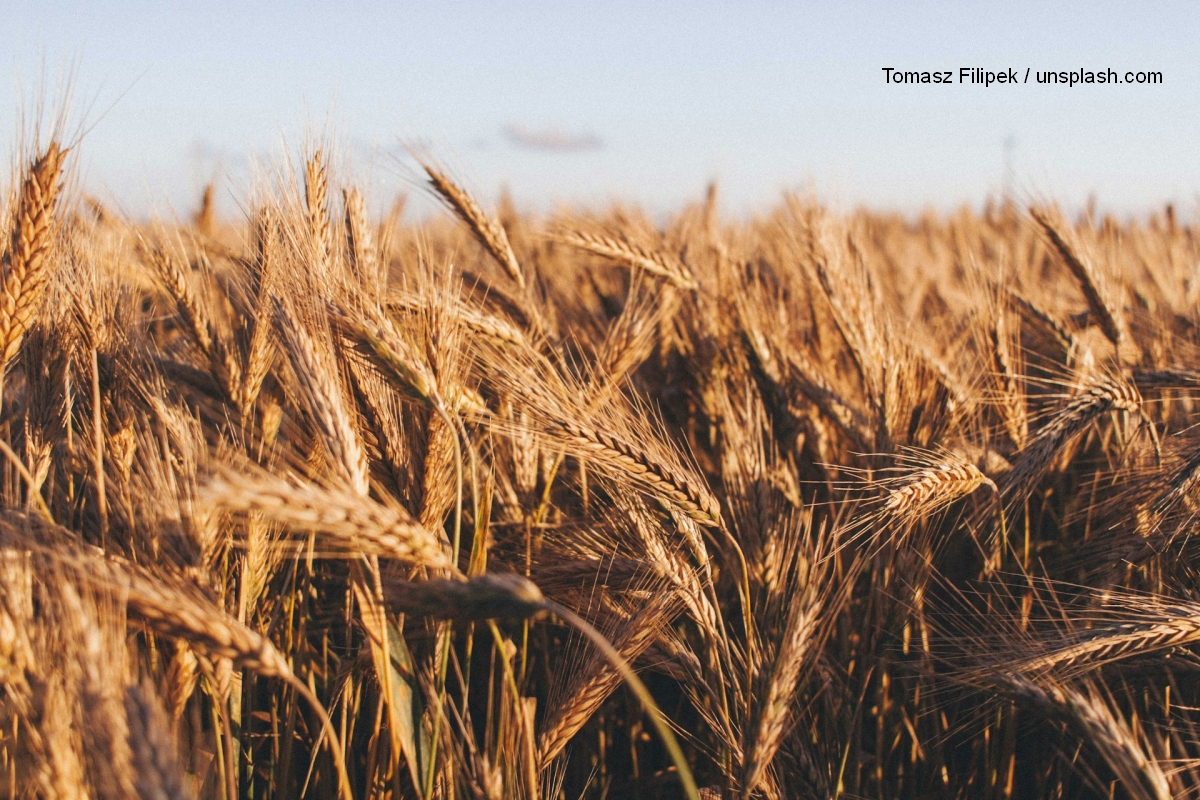Life stories discovered in 2021
The first edition of Inside Romania in 2022 brings you a review of the most fascinating life stories that we discovered in 2021.
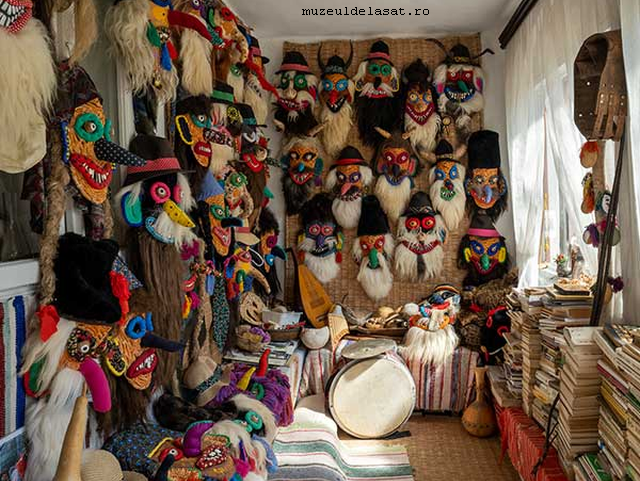
Ana-Maria Cononovici, 04.01.2022, 14:00
We discovered in schools the nutrition education program “Taste carefully, enjoy the moment”, which was initiated after identifying a global trend among young people to choose snacks instead of good meals or, on the contrary, to avoid them completely, for fear of gaining weight.
Florentina Baloş, the ambassador of the program “Taste carefully. Enjoy the moment” told us: “Taste carefully. Enjoy the moment” is about eating carefully, intentionally and about how we can focus on the present, so that we can really feel the taste of the food and enjoy it, because snacks are part of everyday life. This is a project of the One Hundred Percent Romanian Association launched in partnership with ANPC (the National Authority for Consumer Protection) and with 5 high schools from Bucharest. Studies have shown that young people prefer snacks to nourishing foods and then the questions “What do we eat?”, “Why do we eat?” and “How do we eat?” somehow go unanswered, because they eat chaotically. Many times, we dont know what we eat because not all of us know what the labels say, if we havent done some research in advance. And the purpose of the project is to inform and educate. “
Another project which was achieved with much enthusiasm took us to the commune of Augustin, in Braşov county, in the south of the Baraolt depression. Augustin is a commune with 1,900 inhabitants, many very poor and half of Rroma origin, where two teachers laid the foundations of the Edubuzz project or the educational bus. Natalia Ginghină and Adrian Secal are the teachers who created Edubuzz, a charity project for which Simona Halep also donated her birthday.
Adrian told us about Edubuzz that: “Its a kind of after-school. We thought of a space that would be outside the school and as close to the children as possible, so that they can stay there after school. There are many children who are not enrolled in school or who no longer attend classes. It is a community where the absenteeism and dropout rate is quite high and there are many children who do not attend classes. And thats why we thought of offering them the opportunity to continue their schooling or to just learn, because some of them may have never attended school so far.”
Natalia Ginghină added that: “The idea occurred to us out of the need to spend more time with the children, besides regular classes, and to offer them more activities which we could do together. But after we built the bus and found this location, the bus is no longer just for the children who are in school, but also for those kids who dont go to school, for some reason. Its an after-school, but not just an after-school, its actually a school that may turn into a playground.”
The Hora factory in Reghin, central Romania, the biggest producer of musical instruments in Europe, this year celebrated 79 years of existence. Although the pandemic has brought changes in terms of demand and orders, the factory managed to come up with three new products.
Here is now at the microphone the company’s technical manager Dorin Man: “Our factory has developed three big production lines: a guitar line, another line for the production of violins, violas, cellos, double basses and other instruments of this kind, such as the psaltery. This line produces a wide range of bowed string instruments for all kind of players, from beginners to professionals. Another line is devoted to a special kind of instruments, what we call here ethno instruments, like the balalaika, the bouzouki, the psaltery or others. In this category we produce here the cajon, which is a percussion instrument, the Stroh violin, which is specific to the region of Bihor, in western Romania and we have also upgraded the electric guitars that we produce here. We have launched to the market two new types of electric guitars.”
Another story with people who make a difference to the places they have come to settle, is that of the Dutch journalist and writer Janneke Vos de Groot, who came to Romania together with her husband 15 years ago and settled in the town of Iernut. The two managed to live in the natural surroundings of the area and even contributed to the development of tourism in the region. Janneke Vos de Groot has written six books about Romania mainly about the area where she presently lives with her family and the books she wrote have inspired many other tourists to come and visit our country. As she told us, she serves as a guide for the tourists coming to visit these areas.
Janneke Vos de Groot: “I usually go with them showing around beautiful cities in Romania like Brasov or Cluj. But when I ask them what they liked most during their stay, they invariably reply, the life in the countryside at Oarba de Mures. Here we see how simple people live and work. Usually, the women in the village cook a vegetable soup and other local dishes for the group of visitors and that creates a special atmosphere. Not even the House of Parliament in Bucharest is that popular with the tourists coming here as the special lunch that we have in Oarba de Mures!”
Romania has lots and lots of delightful stories for our listeners and we promise to find them and bring them to you in this new year as well.

